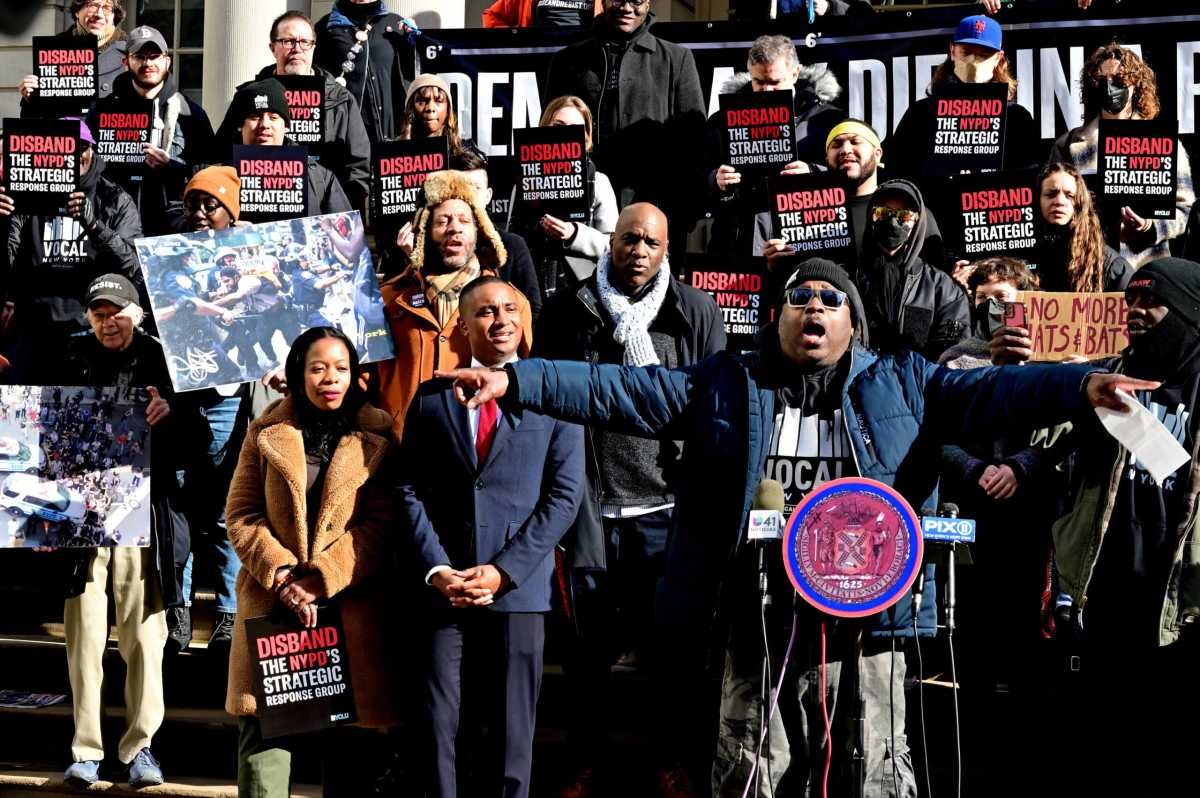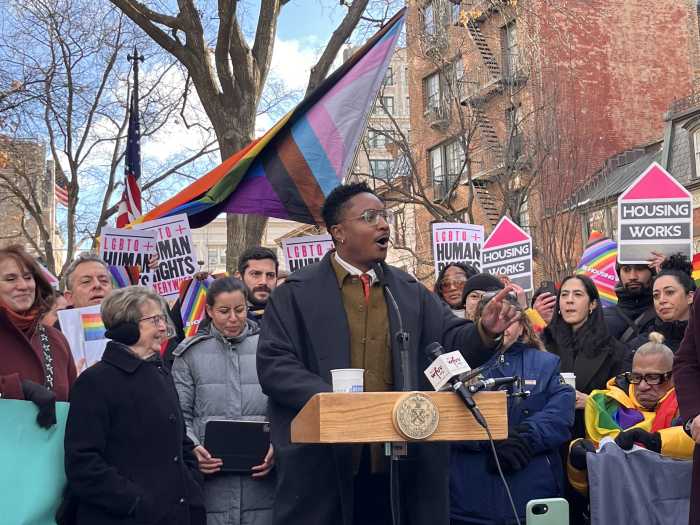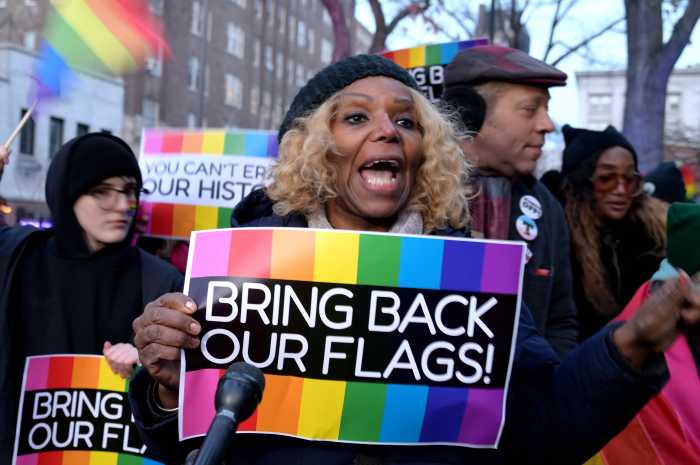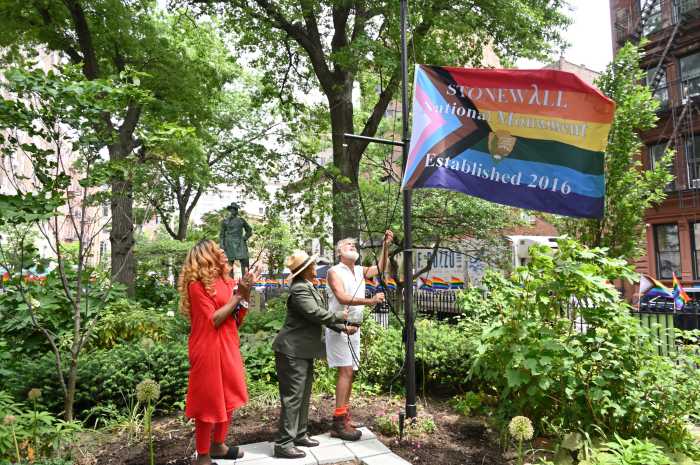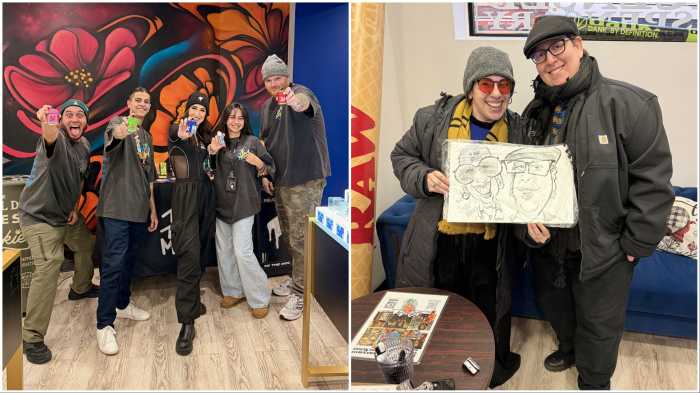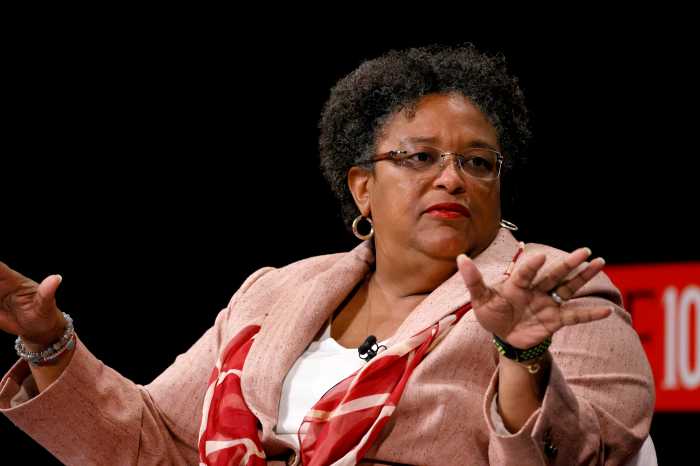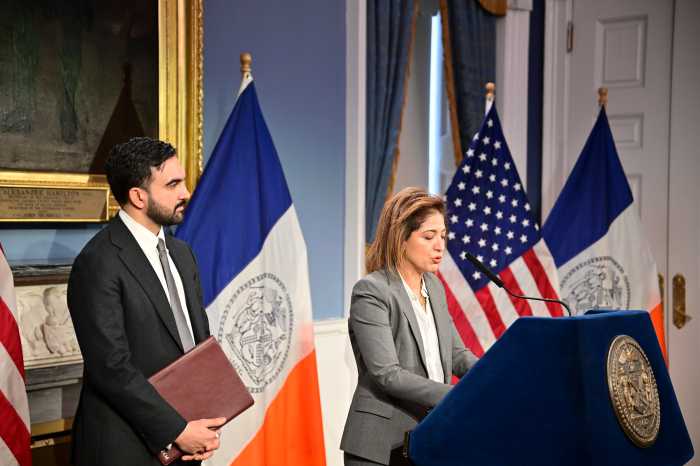Advocates rallied at City Hall and the City Council’s Public Safety Committee hosted an oversight hearing on March 1 to shed light on complaints of misconduct by the NYPD’s Strategic Response Group dating back to the 2020 protests against racial injustice.
The New York Civil Liberties Union (NYCLU) played a leading role in the pre-hearing morning rally on the steps of City Hall. Three days before the rally, the Reclaim Pride Coalition, which organizes the alternative Pride March on Pride Sunday in New York, hosted a town hall during which leaders called on its members to testify at the hearing about the Strategic Response Group’s actions at Pride in recent years when officers have unleashed pepper spray and arrested individuals at Washington Square Park. The Reclaim Pride Coalition and VOCAL-NY were among the groups on hand to put pressure on the Strategic Response Group, which was formed in 2015 as a counter-terrorism unit and has been used in parades and demonstrations, according to the NYCLU.
The NYPD, however, never showed up, aggravating lawmakers who said their questions for the department continue to go unanswered. When asked to comment, an NYPD spokesperson sent Gay City News a statement by Michael Clarke, the NYPD’s director of legislative affairs, who pointed to ongoing legal cases and said “on advice of Counsel from the Law Department, we are not able to answer any questions at this time.” The NYPD spokesperson then referred Gay City News to the Law Department, which did not immediately respond to a request for comment.
Instead, lawmakers spent much of their time during the hearing questioning officials from the Civilian Complaint Review Board (CCRB), which is responsible for investigating cases, mediating disputes, and issuing recommendations regarding complaints against police officers accused of misconduct.
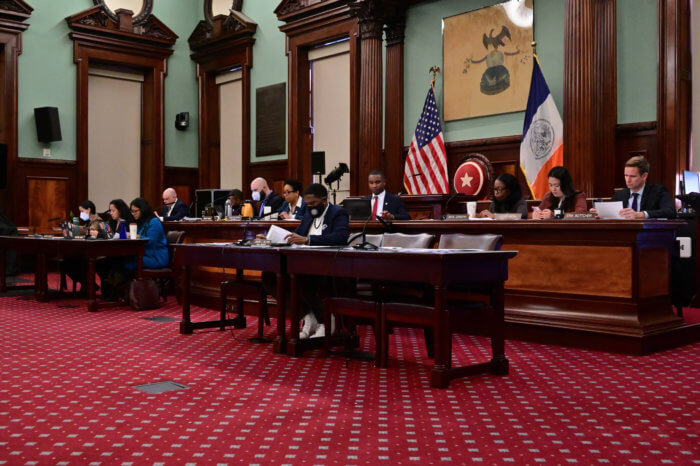
Arva Rice, the interim chair of the CCRB, said the 2020 protests resulted in the highest rate of complaints the CCRB has seen to date. Since 2015, the rate of complaints that have been substantiated against the Strategic Response Group has been higher than the rest of the CCRB complaints, Rice said. A February 6 report issued by the CCRB noted that the agency substantiated 269 allegations against 146 officers for their actions during the 2020 protests.
Among the CCRB’s gripes with the Police Department include frustration over the reluctance of the NYPD to adopt the CCRB’s recommendations and the frequency of cases that go unresolved because the agency is unable to pinpoint which officers were involved in a given incident. In some cases, the officer who is processing an individual’s case is not the same person who actually arrested the individual or stopped them, contributing to even more confusion.
Cases are also often slow to be resolved because, according to CCRB officials, it can take years to reach a conclusion in a case once CCRB recommends discipline. The NYPD commissioner has the final say on CCRB recommendations.
Out Brooklyn Councilmember Chi Ossé, who is not on the Public Safety but attended the hearing, voiced support for a bill introduced last year by Brooklyn Councilmember Charles Barron that would call for the creation of an elected civilian review with term limits board rather than one with appointments. The 15-member board is currently made up of five mayoral appointees, five City Council appointees, three police commissioner appointees, and one by the public advocate. The Mayor and City Council jointly appoint the chair.
“A police commissioner appointed by the mayor should not have the final say on the atrocities her agency is committing against the people of New York City,” Ossé said. The city’s current police commissioner, Keechant Sewell, succeeded Dermot Shea, who oversaw the NYPD from December of 2019 through the end of 2021.
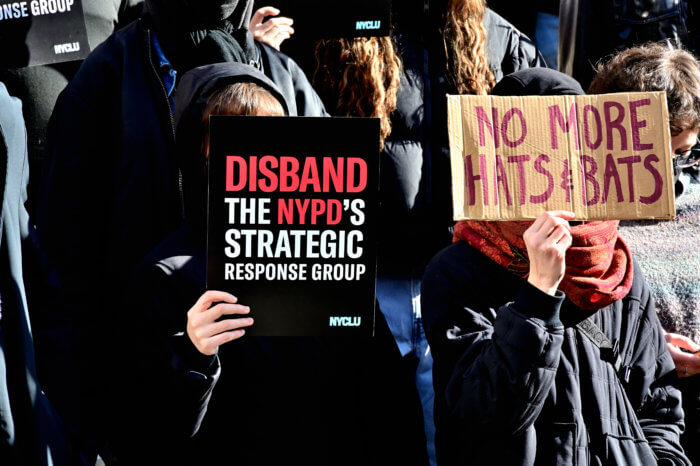
City Public Advocate Jumaane Williams questioned the need for the Strategic Response Group. He said he failed to understand why the city would use police officers trained in violent crime and terrorism to respond to peaceful demonstrations in the city. The Police Department, he said, “has conflated terrorism and protests.”
The tactic of kettling — when cops trap demonstrators into a space, such as a bridge, to prevent them from escaping arrest — was brought up multiple times during the discussion over the Strategic Response Group. Ossé cited reporting from the New York Times indicating that as part of a settlement, the city is shelling out millions of dollars in total to protesters who were kettled in the Bronx during the 2020 protests.
“This proves the Strategic Response Group should be dismantled,” Ossé said.
Echoing Williams’ questions about the purpose of Strategic Response Group cops, Councilmember Julie Won of Queens — who is also not a member of the Public Safety Committee — said she is expecting a deployment of Strategic Response Group cops in her district even though her district’s two police precincts report low crime rates compared to other parts of the city.
“Something is not matching up in terms of deployment,” Won said.
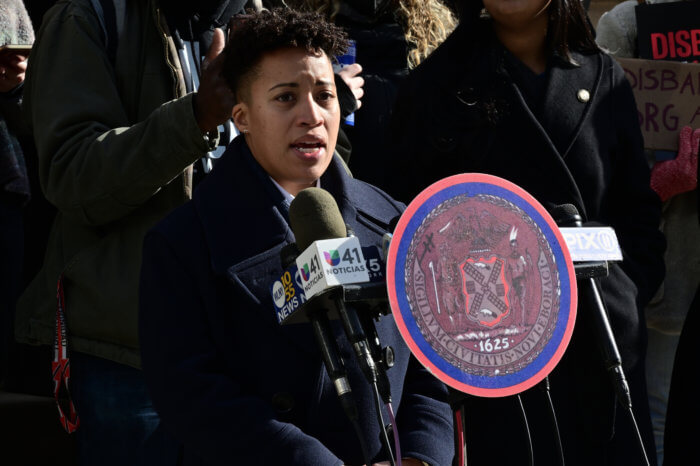
By the time advocates started testifying, lawmakers were making their way out of the Council chamber. One after another, advocates recalled scenes of abuse during the 2020 protest season and some people spoke up about how people of color have bore the brunt of the abuse. Others spoke about terrifying moments when they were pushed to the ground by police.
One advocate, Alvin Dan, recalled getting arrested five times over the course of three months between June and September of 2020.
“I witnessed a battalion of hundreds of officers kettle myself and others,” Dan said.
Another advocate, Walter Dittman, said the Council should look into the abuses by the Strategic Response Group against non-violent protesters. Dittman recalled times when the Strategic Response Group escorted religious anti-abortion individuals to their destination, but arrested individuals trying to assist patrons trying to enter a Planned Parenthood clinic.
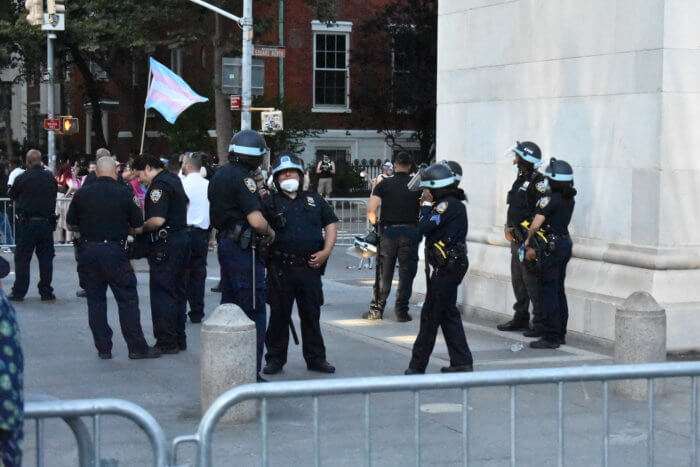
Throughout the hearing, councilmembers tore into the NYPD for failing to attend the hearing.
“I can’t take my eyes off the empty seats where the NYPD should be sitting today,” out Queens Councilmember Tiffany Cabán said. “If you cant face the people’s elected Council, you have no business billing us for your unlimited overtime and disgraceful misconduct settlements.”
Late in the day on March 1, City Council spokesperson Rendy Desamours issued a statement slamming the NYPD for failing to attend the hearing.
“Agencies are expected to be transparent with the City’s residents through public hearings, and the message sent by NYPD leadership today is that the department does not need to be accountable to the everyday New Yorkers they swore to protect and serve,” Desamours said. “This lack of commitment to public transparency and accountability cannot continue, and it’s a shame that the department’s leadership not only undermined its relationship with the Council but all New Yorkers by choosing to not show up.”

